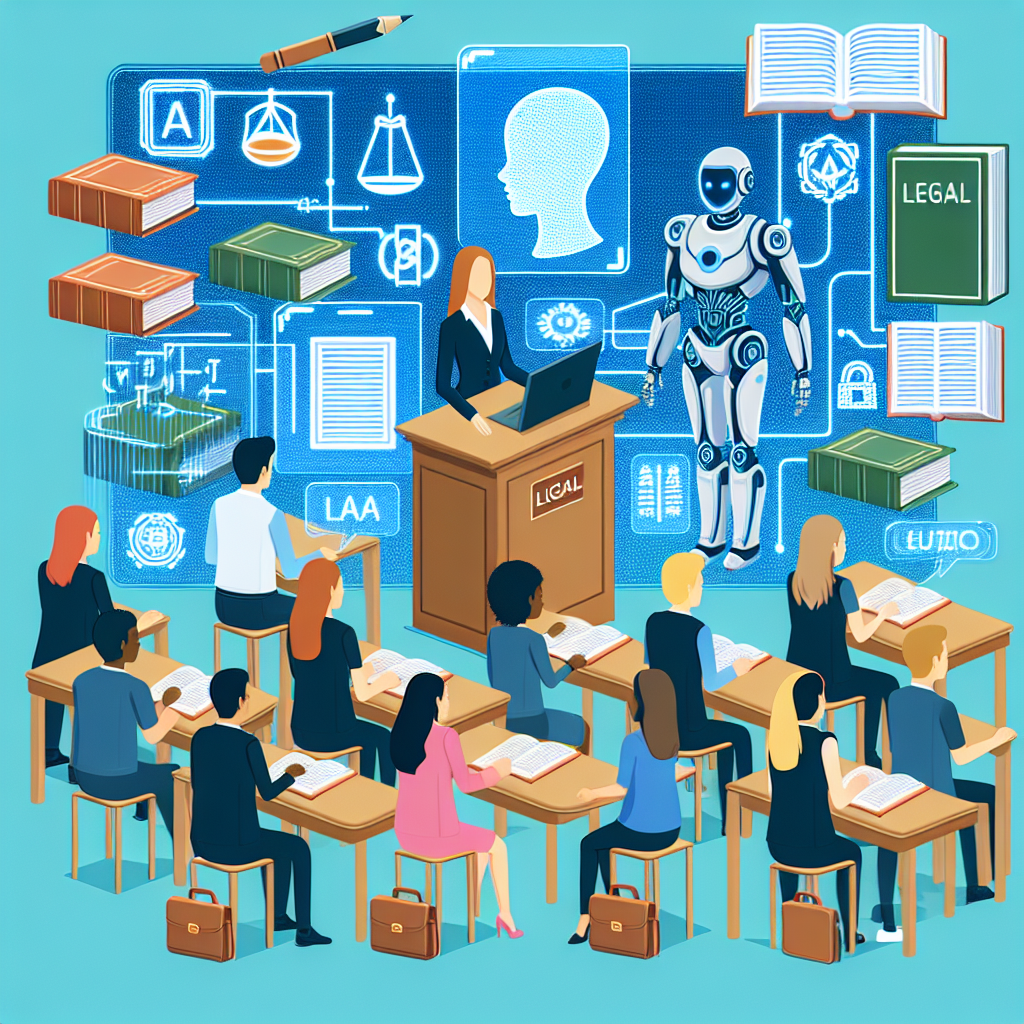The Impact of AI on Legal Education and Training
Artificial Intelligence (AI) is revolutionizing the way we live and work, and the legal profession is no exception. In recent years, AI has been increasingly integrated into legal education and training programs, offering new opportunities for students and professionals to enhance their skills and stay ahead in a rapidly changing industry. From virtual reality simulations to predictive analytics, AI is transforming the way lawyers are trained and educated.
One of the key benefits of AI in legal education is its ability to provide personalized learning experiences for students. AI-powered systems can analyze student performance and provide targeted feedback and recommendations for improvement. This personalized approach is particularly valuable in legal education, where students must master complex legal concepts and develop critical thinking skills. By using AI to tailor their learning experience, students can receive the support they need to succeed in their studies.
AI is also being used to enhance the practical skills training that law students receive. Virtual reality simulations, for example, can provide students with realistic scenarios in which they must apply their legal knowledge to solve problems. These simulations can help students develop their problem-solving and decision-making skills in a safe and controlled environment. By using AI-powered simulations, students can gain valuable hands-on experience that will prepare them for the challenges they will face in their legal careers.
Another way that AI is impacting legal education is through the use of predictive analytics. By analyzing large amounts of data, AI systems can identify patterns and trends that can help educators improve their teaching methods and curriculum. For example, AI can analyze student performance data to identify areas where students are struggling and tailor instruction to address these weaknesses. By using predictive analytics, educators can ensure that students receive the support they need to succeed in their studies.
In addition to improving legal education, AI is also transforming the way legal professionals are trained. Continuing legal education (CLE) programs are increasingly incorporating AI-powered tools to help lawyers stay up-to-date on the latest legal developments and trends. For example, AI can analyze case law and legal research to identify important precedents and trends that may impact a lawyer’s practice. By using AI-powered tools, lawyers can stay informed about changes in the law and develop strategies to address these changes in their practice.
Despite the many benefits of AI in legal education and training, there are also challenges that must be addressed. One of the main concerns is the potential for bias in AI systems. AI algorithms are only as good as the data they are trained on, and if this data is biased or incomplete, the AI system may produce biased results. This is particularly concerning in the legal profession, where impartiality and fairness are essential. Educators and developers must work together to ensure that AI systems used in legal education are free from bias and reflect the values of the legal profession.
Another challenge is the need for educators and professionals to develop the skills necessary to effectively use AI in their practice. Many legal professionals may not have the technical expertise to fully leverage AI tools in their work. Educators must provide training and support to help students and professionals develop the skills they need to use AI effectively. By investing in training and development, educators can ensure that students and professionals are prepared to take advantage of the opportunities that AI offers in the legal profession.
In conclusion, AI is having a significant impact on legal education and training, offering new opportunities for students and professionals to enhance their skills and stay ahead in a rapidly changing industry. From personalized learning experiences to virtual reality simulations, AI is transforming the way lawyers are trained and educated. By harnessing the power of AI, educators and professionals can ensure that the legal profession remains at the forefront of innovation and meets the challenges of the future.
FAQs:
Q: How is AI being used in legal education?
A: AI is being used in legal education to provide personalized learning experiences, enhance practical skills training, and improve teaching methods through predictive analytics. AI-powered tools such as virtual reality simulations and data analysis are helping students and professionals develop the skills they need to succeed in the legal profession.
Q: What are the benefits of AI in legal education?
A: The benefits of AI in legal education include personalized learning experiences, enhanced practical skills training, and improved teaching methods. AI-powered tools can help students and professionals develop critical thinking skills, problem-solving abilities, and stay up-to-date on the latest legal developments and trends.
Q: What are the challenges of using AI in legal education?
A: One of the main challenges of using AI in legal education is the potential for bias in AI systems. Educators and developers must work together to ensure that AI systems used in legal education are free from bias and reflect the values of the legal profession. Another challenge is the need for educators and professionals to develop the skills necessary to effectively use AI tools in their practice. By investing in training and development, educators can ensure that students and professionals are prepared to take advantage of the opportunities that AI offers in the legal profession.

